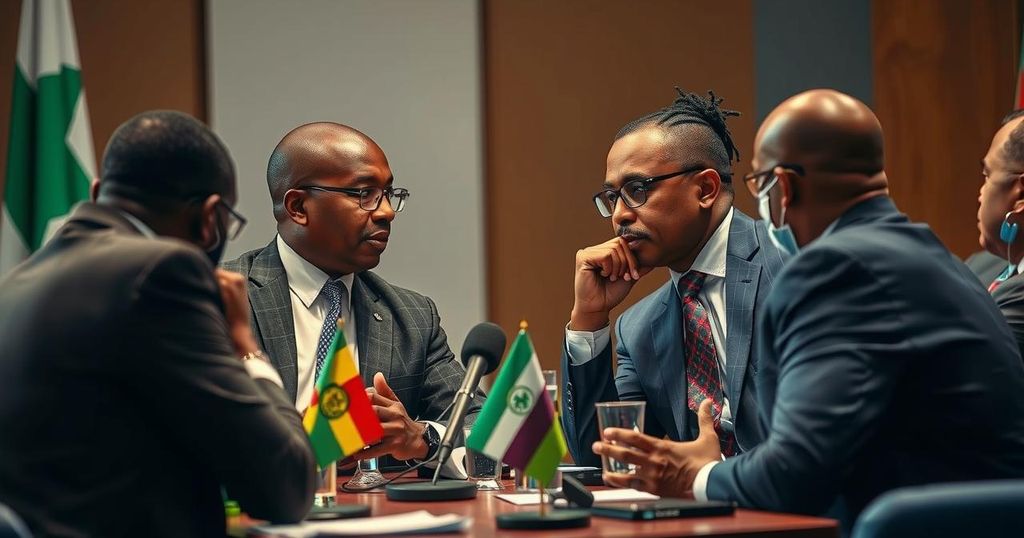Rwanda’s Foreign Minister, Olivier Nduhungirehe, warned that insufficient political will from the DRC endangers the gains from the Luanda Process aimed at peace in Eastern DRC. Despite a recently signed agreement, provocations and militarization by the DRC have raised serious concerns about the commitment to peace, highlighting urgent dialogue needs to address ongoing tensions.
Ambassador Olivier Nduhungirehe, Rwanda’s Minister of Foreign Affairs and Cooperation, has expressed serious concerns regarding the lack of political will and good faith from the Democratic Republic of Congo (DRC), which could jeopardize the recent peace initiatives established in the Luanda Process. This sentiment follows a significant agreement signed between Rwanda and DRC in Angola, intended to foster stability in Eastern DRC and promote amicable relations.
During a recent meeting, Nduhungirehe highlighted troubling actions from the DRC government, including increased militarization and hostile rhetoric, which contradict the agreements reached at the Sixth Ministerial meeting. Despite Rwanda’s commitment to seeking peace, the DRC’s actions, such as mobilizing troops and inciting violence against Rwandans, are perceived as detrimental to the cooperative efforts.
The Rwandan Minister specifically noted the military maneuvers of DRC forces and inflammatory statements made by DRC officials, which cloud the potential for dialogue and peace. He pointed to remarks made by President Tshisekedi and Justice Minister Constant Mutamba, suggesting a broader atmosphere of antagonism that undermines efforts for reconciliation.
Nduhungirehe remarked, “Although we have adopted the CONOPS, Rwanda expressed its concerns during that meeting about the lack of political will and good faith by the DRC in implementing this agreement signed under the water process,” drawing attention to the urgency of addressing underlying issues to achieve lasting peace.
In response to continued hostilities, Government Spokesperson Yolande Makolo emphasized that Rwanda’s security measures cannot be relaxed while hate speech and threats persist from the DRC officials. It is crucial for both parties to engage constructively to resolve their differences and advance the objectives of the Luanda Process.
The recent conflict between Rwanda and the Democratic Republic of Congo has escalated due to historical tensions, particularly in the Eastern DRC region. The Luanda Process aims to foster peace through a series of diplomatic engagements involving Rwanda, DRC, and Angola. Key aspects of these discussions center on the naturalization of armed groups and establishing long-term security measures. The political climate in the DRC, marked by militarization and aggressive rhetoric from government officials, poses significant challenges to these peace efforts. The commitment from both nations to uphold their agreements is essential to stabilize the region amidst ongoing hostilities and humanitarian crises.
In summary, the potential derailment of the peace process between Rwanda and DRC is primarily a result of perceived shortcomings in political will and good faith from the DRC government. Continued militarization and inflammatory rhetoric threaten to undermine the progress made thus far in diplomatic negotiations. The success of the Luanda Process depends on both parties’ willingness to engage constructively and address the underlying issues fueling the conflict. Failure to do so risks perpetuating instability in the Eastern DRC and the broader Great Lakes Region.
Original Source: www.ktpress.rw






